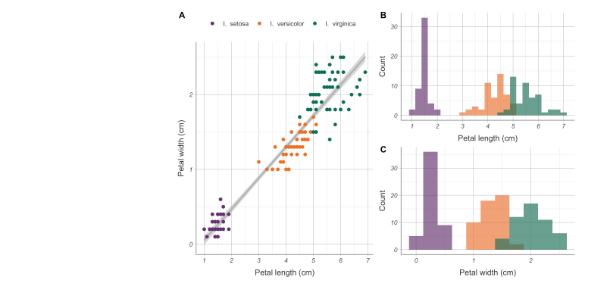
Submitted by Penny Peck on Mon, 16/05/2022 - 14:20
Lyuba Bozhilova is a postdoctoral bioinfomatician at the MRC MBU, who also curates our "MRC MBU Postdocs" Twitter account. Lyuba originally developed this ggplot2 tutorial for members of MitoCAMB and later expanded it to a workshop for members of the the MBU. This tutorial is aimed for research scientists with some limited coding experience.
Lyuba says:
"A key part of our job as research scientists is to communicate our findings to a broader audience, including through papers, presentations, and conference posters. This means we routinely make and re-make figures which illustrate our work and any uncertainties associated with it. Data visualisation is a part of data science that we all engage in, regardless of our field of expertise.
Making figures shouldn’t be painful and confusing. Instead, it should be something we approach systematically and with a level of confidence. With this tutorial, I want to introduce you to my favourite data visualisation tool, ggplot2, and also to the way I think about building and refining figures.
This tutorial has three main parts. First we discuss the layered grammar of graphics, which is a systematic way of thinking about the components of a figure. This part is code-free, but should hopefully help make sense of the code to come. In the second part, we go through the core features of ggplot2, and how we can leverage these to make versatile, complex data visualisations. Finally, we talk about figure refinement, from changing axis labels to setting image size and resolution."
Lyuba is also a Data Champion within the University of Cambridge. One of the reasons to run the workshop and to make the materials availalbe online is to promote open and reproducible research practices.
Data Champions (DCs) are volunteers who advise members of the research community on proper handling of research data. In this, they promote good research data management (RDM) and support Findable, Accessible, Interoperable, and Re-usable (FAIR) research principles.
Data Champions form a network across different schools and departments of the University, as well as affiliated institutes, and are open for collaborations outside the University.

